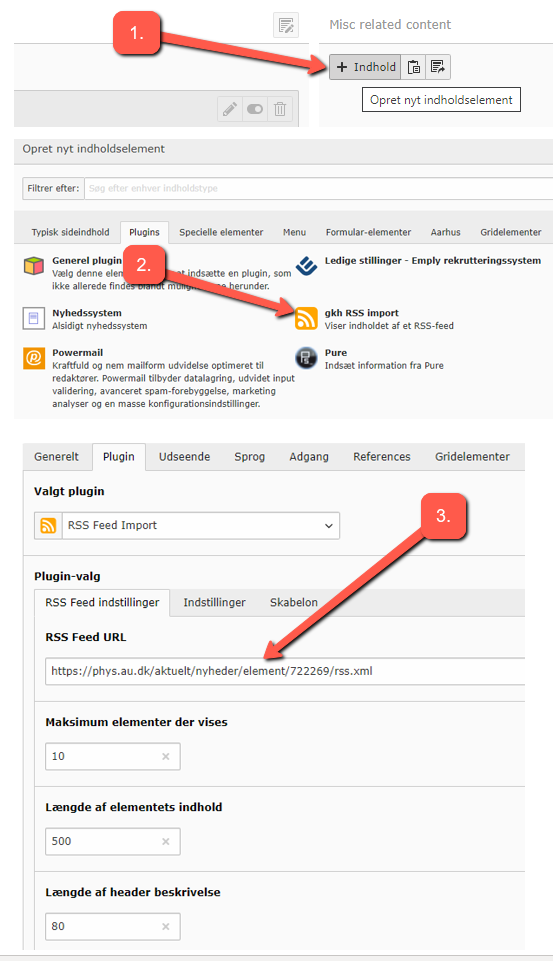What is RSS?
RSS stands for Really Simple Syndication or Rich Site Summary. RSS feeds can be used in the following contexts:
- An RSS feed is a simplified version of a website that, through an RSS reader, makes it easier for you to keep up with the flow of information from one or more news lists on websites.
- An RSS feed can be used as a source for displaying news or events on an information screen.
- Additionally, an RSS feed can be used to showcase another site's news list on your own page.
The technology works by a website offering an RSS feed, which consists of the site's content in an XML format specifically designed for various types of RSS readers to interpret.
1. RSS Reader as a subscription to news feed
You want to subscribe to a series of RSS feeds that you can monitor and access from your RSS reader. In other words, the RSS reader allows you to keep up with a large number of websites simultaneously.
First, you need to copy the link found in an RSS icon or text on the update page you wish to follow. Next, you need to choose an RSS reader, which is the program where you will add your RSS feeds as subscriptions. There are numerous RSS readers to choose from. Some browsers have a built-in RSS reader. You can also add RSS feeds to Outlook, using it as your RSS reader. Alternatively, you can use a web-based RSS reader, which means you don't need to use a program on your computer but instead use a website – similar to how you might use webmail. Feedly is a good and frree option - and it also offers apps for iOS and Android smartphones and tablets.
2. RSS Feed for information screens
An RSS feed can be used as a source for displaying news or events on an information screen. If you want your TYPO3 news list to be shown on an information screen, you first need to find the RSS feed for the specific list: See the guide Add RSS-feed to news list. The provider of your information screens should then be sent the RSS feed, which might look something like this https://phys.au.dk/aktuelt/nyheder/element/722269/rss.xml.
3. How to display news via RSS
AU's TYPO3 has an RSS import plugin designed to display a news list based on an RSS feed. You can copy the RSS feed itself (link to an rss.xml file) from an existing TYPO3 news list or from an entirely different media's RSS feed.
- Click on + Content where you want to display a news or event list based on an RSS feed.
- Select the Plugins tab and click on GKH RSS Import.
- Open the Plugin tab and insert your RSS feed into the RSS Feed URL field under RSS Feed Settings. You can then review the other settings as needed.

See example of RSS import from health.au.dk
An RSS feed link like this one https://health.au.dk/element/115759/rss.xml can be inserted into a GKH RSS import plugin. This has been done below, and the news list appears on this page just like on the original Faculty of Health.









